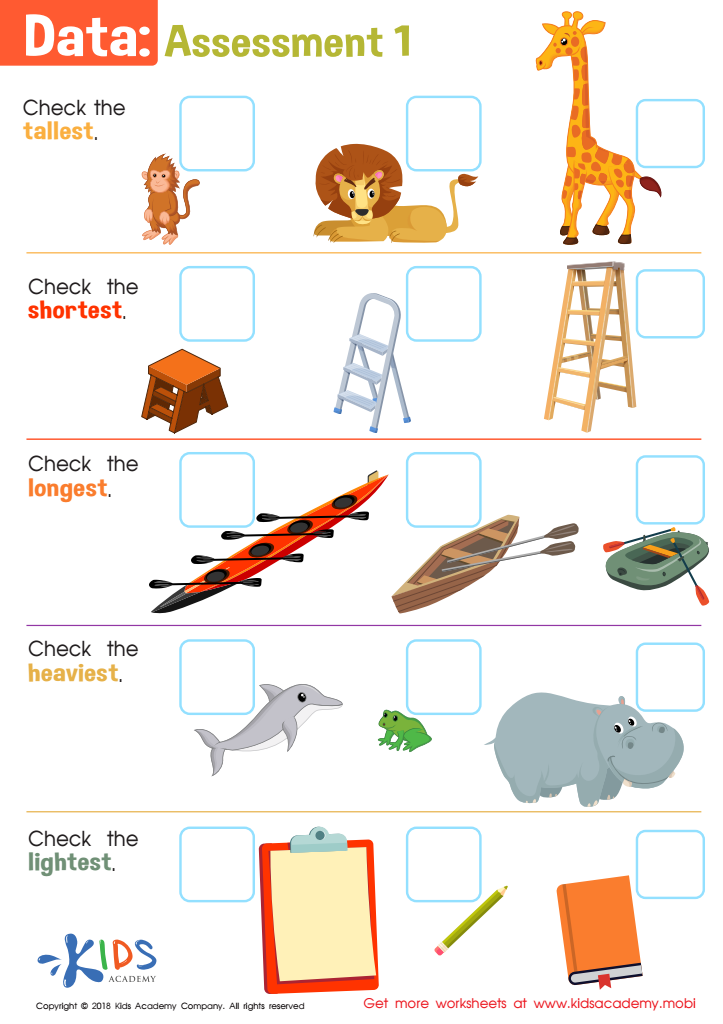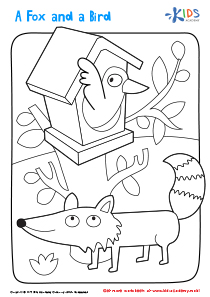Easy Measurement worksheets activities for Ages 4-5
1 filtered results
-
From - To


Data: Assessment 1 Worksheet
Easy Measurement worksheets activities stand as an essential tool in the educational toolkit for both teachers and parents looking to enhance their children's understanding of measurement concepts. These activities are particularly useful for several reasons.
Firstly, Easy Measurement worksheets activities introduce young learners to the fundamental concepts of measurement in a structured, yet engaging manner. They cover a variety of topics, including length, volume, weight, and temperature, making them a comprehensive resource for foundational learning. This broad coverage ensures that students can apply these concepts in real-life situations, enhancing their practical understanding of the world around them.
Moreover, these worksheets are designed to cater to different learning styles. Whether a child learns best through visual representation, hands-on activities, or logical reasoning, Easy Measurement worksheets activities include a variety of approaches to accommodate diverse learners. This inclusivity boosts the confidence of young learners as they find methods that resonate with their individual learning preferences, making the learning process more effective and enjoyable.
The progressive nature of Easy Measurement worksheets activities is another significant benefit. They often start with simple measurements and gradually increase in complexity, allowing students to build their skills step-by-step. This methodical approach helps in reinforcing learning, fostering a deeper understanding of measurement concepts, and developing proficiency over time.
Furthermore, these worksheets encourage critical thinking and problem-solving skills. As students engage with different measurement challenges, they learn to analyze scenarios, compare units, and make conversions. These cognitive processes are vital across all areas of learning and serve students well beyond the classroom.
Finally, the accessibility and convenience of Easy Measurement worksheets activities cannot be overlooked. They are readily available, easy to distribute, and can be utilized in various settings - from classrooms to home learning environments. This flexibility makes it easier for educators and parents to incorporate them into their teaching strategies, ensuring that learning opportunities are never missed.
In summary, Easy Measurement worksheets activities are an invaluable resource for teaching measurement concepts. Their ability to cater to diverse learning styles, combined with the progression and variety they offer, makes them an effective tool in fostering a thorough and practical understanding of measurement in young learners.
 Assign to the classroom
Assign to the classroom











